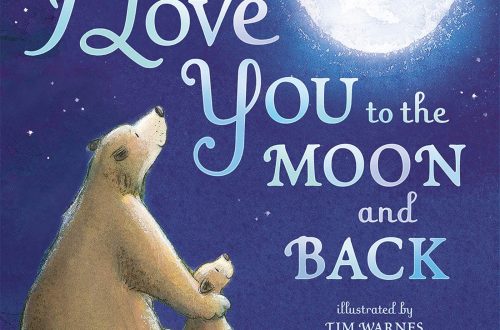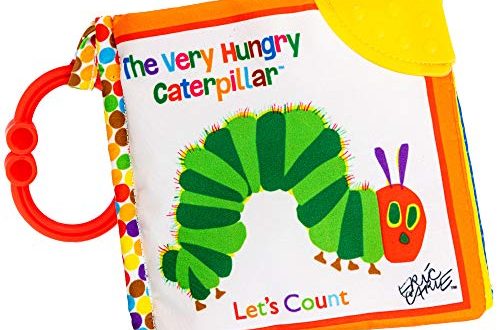
How many hours can my baby sleep without feeding?– Nested Bean
It’s blissful as a new parent when your baby has fallen asleep and you have some time to rest – but you may also be worrying about whether your baby has eaten enough. So, how many hours can your little one sleep without feeding?
Your baby’s sleep is one of the most important tools needed for them to grow into healthy children; from allowing rest and recovery from busy days to promoting brain development, the importance of infant sleep can’t be overstated.
But for the first few months of their life, your little one won’t be able to sleep through the night – and not just because they’re crying and fussing! They’ll need to be fed every few hours, including at night, and this means that they won’t be able to sleep for a long stretch of overnight sleep until they’re at around the six-month mark.
Here, we’ll talk about the reasons why your baby needs such regular feedings, and go through how long little ones can sleep between feeds based on your baby’s age.
Feeding Time – your Baby’s Stomach Size
The reason your baby needs lots of little feeds throughout the day rather than a few big meals like we have as children and adults is because of their stomach size.
As a newborn, your little one has an even littler tummy, and can only hold up to a couple teaspoons of liquid! Their stomach size is also dependent on factors like their birth weight, so babies born prematurely are likely to have an even lower capacity for milk.
Lactation consultant Ellen H. Schwerin from Happy Milk Lactation Support has this to say about how much you can feed your baby in their very first week of life:
Countless hospital nurses have learned the hard way that on the first day when newborns are fed an ounce or two by bottle, most of it tends to come right back up. The walls of the newborn stomach stay firm, pushing out the extra milk rather than stretching to hold it.
On Day 1, a newborn’s stomach can hold about one-sixth to one-fourth of an ounce (5 to 7 ml) per feeding. Not surprisingly, this amount of colostrum is ready and waiting in the breast.
By Day 3, as the baby gets many more of these small feedings, his stomach expands to about the size of a ping pong ball to hold more milk.
By Day 10 it is the size of an extra large chicken egg.
As you can tell, this means that you have to feed your baby little and often, increasing their portion of milk – and therefore the time between feeds – as their stomach grows.
Hours your Baby can Sleep without Feeding by Age
The National Sleep Foundation states that newborns sleep for an average of sixteen hours within a twenty four hour span, with most babies snoozing for around 14 hours per day by the six-month mark, but this amount is split into many smaller naps rather than a single stretch of sleep.
Fortunately, because of their growing stomach, your baby sleeps for longer between feeds as they get older – here, we’ll go through how long your baby can go between feeds based on their age.
One to Four Weeks Old
As we’ve already established, newborn babies can only hold a tiny amount of milk in their first month of life – that means that they need regular feedings, and shouldn’t go longer than around two hours without being fed. If they’re formula fed you can wait a little longer, up to around three hours, but on the whole, you’ll need to be feeding your baby at least two or three times throughout the night; at this stage, you’ll be feeding them on demand according to when they’re hungry.
If you’re worried about helping your little one fall back to sleep after a feed, you can always try swaddling with our Zen Neo! The perfect first swaddle for any baby, the Zen Neo helps ease the womb-to-world transition with its snug and stretchy fabric, while the safe two-way zipper makes nighttime changing a breeze.
Four to Eight Weeks Old
From four to eight weeks, your little one will be able to go a little longer without a feed, especially if they’re formula fed. At this age, breastfed babies can go around two and a half hours without a feed, while babies drinking formula can go for a little over three hours.
As you can tell, at this age, most babies’ stomachs haven’t expanded too much yet, but hang in there – you’ll get through this phase and have them sleeping through the night before you know it!
Eight to Sixteen Weeks Old
Between the ages of two and four months, your baby will again be able to go a tiny bit longer without a feed – generally, up to three hours. This means that your baby is likely to need around two feeds at night if you’re aiming for a stretch of nine or ten hours of sleep. Of course, this includes incorporating a feed into part of your baby’s bedtime routine, and giving them a drink of milk when they wake up in the morning.
If you want to help your baby sleep again after you’ve woken them up for a midnight snack, you can always give dream feeding a try! This involves only waking your sleeping baby up enough for them to latch, then feeding them while they’re awake but very drowsy – this allows them to fall back to sleep again without trouble once they’ve had their fill of milk.
Sixteen to Twenty-four Weeks
At the four-month mark, your baby should be able to go for up to four hours without being fed, meaning that you can hopefully reduce their number of nighttime feedings down to just one.
This is great news for anyone who wants to start sleep training their little one – you can do this from around four months of age, and having fewer necessary feeding wakeups through the night makes this process easier, particularly if you’re using a method that involves leaving your baby to self-soothe.
Over Twenty-four Weeks
Once your baby is approaching six months of age, it’s time to celebrate, as there’s a good chance they’ll be able to sleep through the night now without needing to be fed, and there’ll be far fewer more middle-of-the-night trips to baby’s crib for you!
Of course, this is different for every baby – some might be ready a few weeks earlier than this, while others might need a feed at night until they’re seven or eight months old. For healthy babies, being a little early or late in this regard is totally normal!
Breastfeeding or Formula Feeding?
Both breastfeeding and formula feeding are able to keep your baby happy and healthy, but whichever option you choose actually makes a difference to how long your baby can go between feeds. Because your baby is able to digest breastmilk faster due to enzymes it contains, this means that their body processes it quicker, and that they’ll need to be fed again sooner than if they’re formula fed.
For example, while a breastfed baby can only go between two and three hours between feedings in their first month, a formula fed baby can go for three to four hours. This is just one of many factors to take into consideration when you’re thinking about how you want to feed your baby when it arrives.
Baby not Eating – When to Speak to a Doctor
You may not be feeding your baby because they’re sleeping through the night or simply don’t seem hungry. But at a certain point, this can become a problem – particularly if they’re only a month or two old, if they had a low birth weight to begin with, or if your baby’s weight gain has stagnated.
If your baby isn’t eating on a regular basis you should contact a medical professional, as losing weight can become dangerous quickly and can increase your baby’s risk of sleep-related infant deaths like SIDS (Sudden Infant Death Syndrome).
Here’s what registered nurse Melissa A Kurke has to say about when your baby’s ‘breastfeeding strike’ can become a bigger problem:
A breastfeeding strike can be uncomfortable for you and your baby. You might feel rejected and frustrated. Don’t feel guilty, though — it’s not your fault.
To prevent engorgement and maintain your milk supply, pump milk as often as your baby used to breastfeed. You can feed the expressed milk to your baby with a spoon, dropper or bottle
If a breastfeeding strike lasts more than a few days, your baby has fewer wet diapers than usual or you’re concerned about your baby’s difficulty breastfeeding, consult your baby’s doctor.
Commonly Asked Questions about How Many Hours your Baby can Sleep Without Feeding
Should I wake my baby at night to feed her?
Whether or not you need to wake your baby at night to feed them depends on their age. For instance, if they’re over a year old, you’re safe to let them sleep through the night without being woken up.
If you do need to wake your baby, you can always try a dream feed – this involves letting your baby sleep, then waking them just enough to feed them while they’re still drowsy. This allows them to (hopefully!) fall asleep again without too much fuss.
Is it ok if my baby only breastfeeds for five minutes?
Breastfeeding is a highly personal experience for both moms and babies, and it can look different for every family. While some babies want a few big meals and feed for up to 45 minutes at a time, others might prefer snacking little and often, only feeding for five minutes or less from each breast.
As long as your baby is still gaining weight at a healthy rate, this is nothing to be concerned about. On the other hand, if your baby does this and remains on the smaller side, you may want to speak to a doctor to clarify any underlying reasons for their lack of appetite.
Can babies sleep for twelve hours without eating?
This depends on their age – if your baby is older than around six months, not waking in the night for a feed is totally normal, and having one long uninterrupted stretch of sleep (between ten to twelve hours) will support healthy sleep habits in the future.
If your baby is significantly younger than this, then they should be eating much more regularly – it’s recommended that little ones under the age of four months are given at least one feed during their stretch of nighttime sleep.
Additionally, it’s important to remember that every baby develops differently – while some might be ready to sleep through the night as soon as they hit the four-month mark, others might take a little longer and still be waking up for a midnight snack at five or six months. Both of these scenarios are normal and healthy!
Is it ok for my seven-week-old to sleep eight hours?
While every parent of a newborn dreams of a future where their little one can consistently sleep through the night, this milestone takes a little time – usually, your baby won’t be able to sleep uninterrupted for eight hours until they’re around three months of age.
This is partially because of their newborn sleep patterns, which still haven’t adjusted to natural circadian rhythms, but primarily because of the amount of food they can eat at once. When babies sleep for this length of time during the daytime or nighttime, you’ll need to wake them up for feeds every few hours. This is because their stomach is too small to hold enough of a milk supply to keep them fed and full for this amount of time.
If, for instance, your newborn slept 7 hours without feeding and without waking up for a feed on their own, you may want to speak to your pediatrician to make sure there are no underlying issues behind their lack of appetite.
How do I help my baby fall asleep after a nighttime feed?
One of the frustrating parts of being a new parent is needing to wake your snoozing baby for a feed – then finding that they can’t fall asleep again! Something you can try to prevent this is a dream feed – this involves waking your baby just enough to feed them but keeping them drowsy so they don’t struggle to snooze again.
You could also try swaddling if your baby hasn’t shown signs of rolling over yet. Our Zen Swaddle features gently weighted Cuddle Pads that mimic your soothing touch to help little ones fall asleep feeling safe and cozy!
You may also like
Night feedings by age
Baby sleeping more than usual? Here’s why
Your baby’s wake windows by age
June 16, 2023
Athena S.




